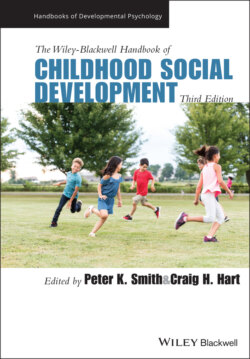Читать книгу The Wiley-Blackwell Handbook of Childhood Social Development - Группа авторов - Страница 113
Core features of ecological perspectives
ОглавлениеFrom these theories, we see that the fundamental premise of ecological perspectives applied to human development is how an individual both influences and is influenced by interactions with their environment. The development of individuals does not occur in isolation. Their interactions with the environment are reciprocal, and they are part of a complex network of relationships and systems.
There are several other core features of ecological perspectives on development. One is the role of context. The environment, or ecology, in which an individual is situated shapes their development. The context can be represented as different layers or systems based on what and who an individual interacts with, within their immediate environment, and which structures have more remote influences. Development is contextual because of the complex interaction between personal characteristics and environmental factors.
A second common feature is the emphasis on process. Development is seen as ongoing, fluid, and longitudinal, rather than static and with a definable end point. Because of this we see attention to the progressive nature of development across the lifespan rather than just in childhood. The individual is also active in their own development. They perceive, explore, interpret, and interact with their environment rather than passively spectating or responding to stimuli. There is however consideration of how the actions of individuals operate within certain external constraints. The contexts within which people are situated (such as schools, families, churches) are cultivated through collective action for a shared purpose over time, and therefore have established norms, expectations, and practices, often tacit, which regulate behavior and frame interactions. Individual agency is, therefore, “socially regulated” within available options, possibilities, or affordances of the environment (Barker, 1968).
Finally, there is emphasis on time in development. For example, the stability of development, and experiences of continuity and change in the individual and their environment are of interest. So too are notions of intensity, in relation to the frequency and duration of interactions in the short term (minutes, days) and long term (across the lifespan). Timing is also significant for both when in someone’s life trajectory an event or experience occurs, but also the point in history that people are living through and the sociocultural shifts and changes that occur over time.
